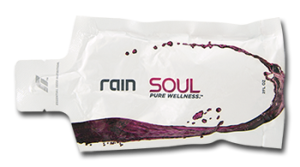How does alcohol affect me? Drinking a moderate amount is good for circulation and for the heart. Also, drinking in moderate amounts seems to protect people against gallstones, type 2 diabetes, and heart disease.
Humans have been drinking alcohol for at least 10,000 years and during this time. There are significant differences between drinking in moderation and excessive intakes. Such as the case with abuse and full-blown addiction known as alcoholism
What Is Moderate Consumption?
In women, this means drinking one alcoholic beverage every day (and no more). Men can get away with 2 alcoholic beverages per day. One drink is about 5 ounces of wine, 12 ounces of beer and about 1.5 ounces of hard liquor. More than that and the positive effects seem to slip away.
What are positive Effects of Moderate Consumption?
Moderate consumption has been found to decrease the risk of diseases. Mostly caused by blood clots by a factor of 25-40%. This includes stroke, heart attacks, and peripheral vascular disease. Along with decreasing the risk of complications of type 2 diabetes, high blood pressure, and old age. Moderate amounts have been found to increase the levels of HDL cholesterol. This is considered the “good cholesterol.” Blood clotting factors are also less likely to cause clots in those who drink alcohol.
How does alcohol affect the brain?
Certainly, heavy drinking is a problem and is one of the #1 causes of preventable injury and death in the US.
Alcohol plays a role in nearly 50% of all motor vehicle accidents. It can damage the heart and liver in large doses. Furthermore, increases the risk of birth defects, breast cancer, depression, relationship problems, and other cancers.
Alcohol has been found to inhibit the absorption of folate, an important B vitamin for embryonic spinal cord growth. This is partly why it is not recommended to consume in pregnancy. This folate disruption in consumption is also felt to be the reason why it can increase the risk of colon, breast, and other cancers. People who take in at least 600 mcg per day of folate can decrease some of the negative effects of alcohol consumption.
In moderation has been shown to help those with type 2 diabetes and gallstones. This connection also goes away when alcohol is taken in too heavily. A drink after a meal can aid digestion of the meal and people who drink only small amounts of alcohol tend to be less stressed than those who do not drink. The trick is to spread out the consumption over the week. Binging at any time negates the positive effect of the disease.
What is the difference in Heavy Drinking And Alcoholism
Heavy drinking poses numerous dangers for the body, easily comparable to poison it directly causes chronic disease, like cirrhosis and negatively effects important organs and processes in the body.
• It can cause hepatitis. Which is inflammation of the liver and cirrhosis. This scarring of the liver tissue that is not reversible and may lead to premature death.
• It can increase blood pressure and cause cardiovascular damage to the muscle of the heart.
• Consumption that reaches the level of being an alcoholic can lead to violent crime, automobile accidents, and social problems.
• Those who drink can have sleep disruption, cloudy judgment, and medication interactions.
• It can be addictive in some people, especially those who have a family history of alcoholism.
• Heavy use has been found in several studies to increase the risk of developing breast cancer in women. Those who drank more than two drinks per day suffered from a greater risk of breast cancer by a factor of 41%.
 Who Becomes An Alcoholic
Who Becomes An Alcoholic
Both genes and environmental issues play a role in who becomes an alcoholic and who doesn’t. Genes for the enzyme alcohol dehydrogenase seem to play a specific role. Those who have one type of alcohol dehydrogenase develop less heart disease than those who have another type of alcohol dehydrogenase in their bodies.
The benefits and risks of consumption vary with a person’s age. Younger people have less benefit and more risk, especially among pregnant women and those who drive drunk.
Older people may benefit from drinking one alcoholic beverage per day (or two for men).
How To Make Sense Of It All
Alcohol has complex effects on the body so that it is difficult to make statements as to whether or not you should consider alcohol helpful or harmful.
If you are at a low risk for heart disease and cancer, it may not pay at all to drink alcohol. If you have a risk for addiction, no amount of alcohol can prevent you from eventually developing an addiction to the drug in some cases.
Furthermore, if you currently don’t consume, most experts recommend you don’t start drinking just for medicinal purposes. People at a high risk for heart disease or breast cancer because of family history or lifestyle options may choose to drink a moderate amount of alcohol every day.
Make sure to take in at least 600 mcg of folic acid along with the alcohol so you don’t become folate deficient.
If you enjoyed this blog on the How does Alcohol affect me click here for more!







